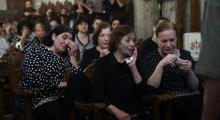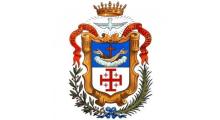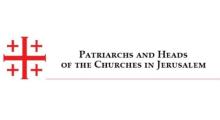Issued by the Catholic Center for Studies and Media - Jordan. Editor-in-chief Fr. Rif'at Bader - موقع أبونا abouna.org
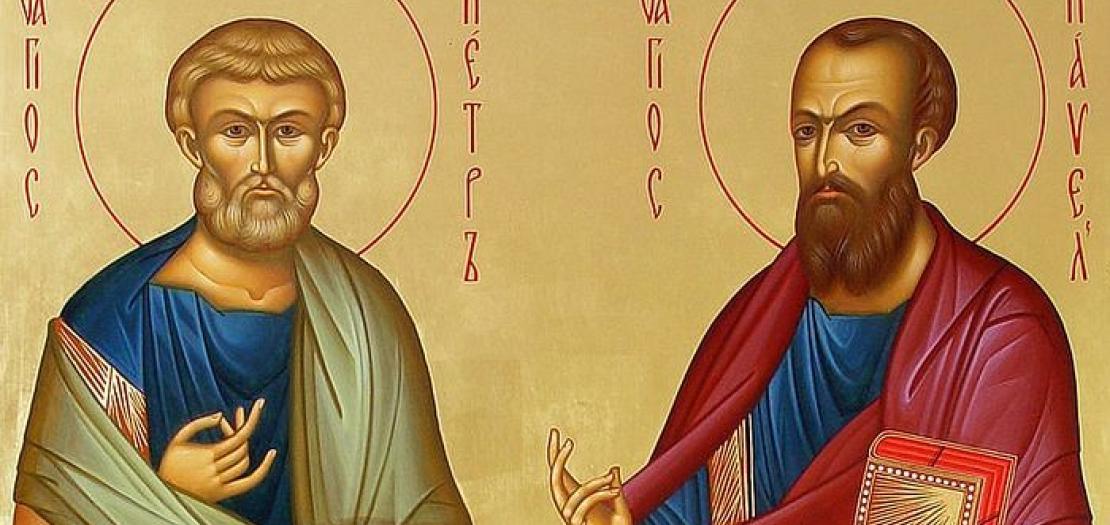
Following is the text of Patriarch Pizzaballa's meditation marking Solemnity of St. Peter and St. Paul dated June 29, 2025:
In today’s Gospel passage (Matthew 16:13-19) we read the first part of the episode in Caesarea Philippi, the part in which Jesus asks his disciples to tell him what people think of him and what they themselves think about who this “Son of Man” (Mattew 16:13) is to whom they have committed their lives.
To say something about Jesus, the crowd and the disciples refer to the great prophets of the past (“Some say John the Baptist, others Elijah, still others Jeremiah or any of the prophets” (Mattew 16:14): that is, they realize that this is a great, special person, but no different from others who were already part of biblical history. They notice nothing new, go no further and see in him again the same gestures, the same attitudes, the same Word that had been revealed to the people through all the other messengers of God.
This is true on the one hand, but it is by no means the whole story. Jesus is in continuity with the entire history that God has carried out up to this point, but he is not only that. This history finds its ultimate revelation in Him.
The thinking of the crowd is merely human thinking that comes from “flesh and blood” (cf. Mt 16:17): “For flesh and blood has not revealed this to you, but my heavenly Father”), the result of their reflection, their reasoning. However, the disciples cannot be content with such a limited and superficial knowledge of Jesus.
Peter’s answer therefore goes further. What the crowd’s thinking about Jesus lacks, what they cannot see, is given to the disciples by inspiration from the Father in heaven. (Matthew 16:17)
It does not come from flesh and blood, it does not come from Peter’s observation, from his thinking, from his experience. It does not stop at something already known and familiar, but opens up to a revelation, a light that Peter and the other disciples cannot give themselves.
For there is something unprecedented and scandalous about the person of Jesus that flesh and blood alone cannot comprehend. It is about converting to a concept of God who has revealed himself in the flesh and in the life of a person like us. And this understanding does not come about through an effort of the intellect, but by allowing oneself to be drawn to the Father, it comes from wonder.
Those who accept this gift are no better than others. Whoever accepts it is blessed (“Jesus said to him, "Blessed are you, Simon son of Jonah” - Mt 16:17), that is, he becomes the recipient of the greatest richness of humanity possible to a creature, namely the one who discovers that God is present in his own poor and limited history.
Those who accept this gift add infinite dimensions to their lives, new relationships, and thus the Church is born (“I say to you, you are Peter, and upon this rock I will build my church”, (Matthew 16:18) a people of people who marvel at the mystery of God freely revealed to the little ones.
And because it is not born of flesh and blood, the Church cannot be destroyed by human powers (“the gates of the netherworld shall not prevail against it." (Matthew 16:18) They can wage war against her, they can try to eliminate her, but they will not succeed because she carries within her the life of God, which cannot die.
However, the continuation of the passage, which we do not read today, tells us that there is a danger to the church. It is not a danger that comes from outside, from external enemies, from those who are hostile to the Church. The danger for the Church comes from within, from the temptation of its disciples to return to a thought that is not that of Christ, namely that of Easter.
Immediately afterwards, Jesus speaks of his Passion (“From that time on, Jesus began to show his disciples that he must go to Jerusalem and suffer greatly”, (Matthew 16:21) and the same Peter, who shortly before had made his pompous profession of faith, shows that he is still completely immersed in a human logic that projects onto God himself that hunger for power and success which the God of Jesus Christ can in no way attribute to himself.
This is the Church. A community that discovers more and more the true face of God, not through flesh and blood, but in the Holy Spirit, and then makes it known to the world.
+ Pierbattista
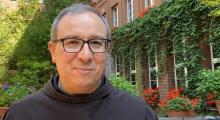 Custos of the Holy Land Br. Francesco Ielpo visits Christian communities in Syria, Lebanon and Cyprus
Custos of the Holy Land Br. Francesco Ielpo visits Christian communities in Syria, Lebanon and Cyprus 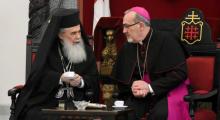 Cardinal Pizzaballa, Patriarch Theophilos III head to Gaza following strike on Gaza Church Compound, July 18
Cardinal Pizzaballa, Patriarch Theophilos III head to Gaza following strike on Gaza Church Compound, July 18 

